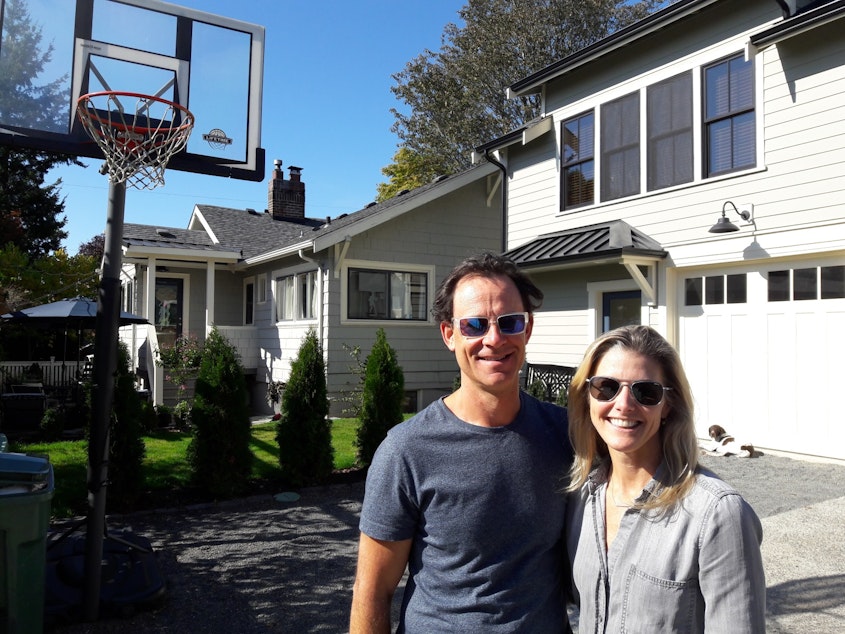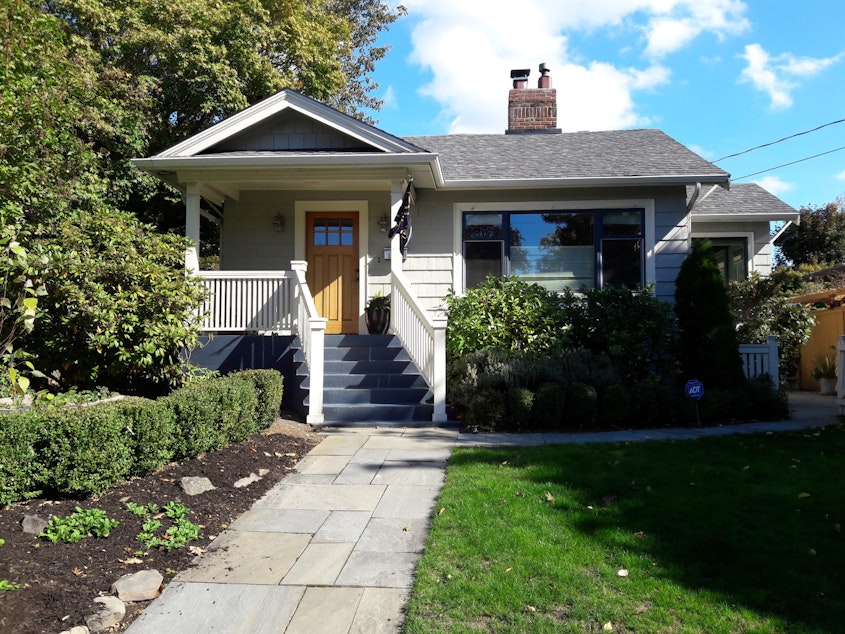Backyard cottage rules could loosen in Seattle next year

In the midst of its housing crisis, the City of Seattle is looking at ways to make it easier for homeowners to build backyard cottages. Some residents are excited about proposed changes to the law — but one architect is fighting the changes ahead.
When the Cahn family wanted to add space to their thousand-square-foot bungalow in northeast Seattle, they found it was too expensive to add an extra floor. Plus, it wouldn't have fit the neighborhood.
“We didn’t want to build some towering thing that was imposing on the people around us,” Andrew Cahn said.
So, they built a backyard cottage instead. You can’t even see it from their leafy northeast Seattle street. And it cost about half what the extra floor would have cost.
The Cahns built their project under the city's old rules, rules that require every backyard cottage to have its own parking space. Fitting the parking stall in and still having a functional backyard was a bit of a puzzle, they said.
New proposed rules from the city would drop the parking requirement. "Eliminating that makes it much more enticing for a lot of people who would consider building a cottage," said Andrew Cahn.
Another proposed rule change would eliminate the requirement that owners live on the property.

These two changes are among the reasons architect Marty Kaplan has been leading a group in a long fight against the new rules. He's concerned real estate speculators would take advantage of the new rules, taking over whole neighborhoods and putting in three homes for every one that's there now.
Some people would call that a good thing. Seattle needs more housing, after all. But Kaplan said speculators would be less likely to care about side effects of such density on the neighborhood.
“And there are some real consequences to that," said Kaplan. "The question is, where are all these new people going to park? Because we can’t even park now, close to our home."
Kaplan's fight has delayed the rule changes before. When he succeeded, a hearing examiner required the city to conduct a more thorough examination of potential consequences. That study is now complete—and is the reason the city council is preparing to take up the rule changes once again.
Kaplan said his group is still digesting the newly completed environmental impact study and deciding whether to continue its argument before the hearing examiner.
The latest iteration of the new rules also discourage developers from tearing down small homes and replacing them with much larger homes.
An aide in Councilmember Mike O'Brien's office said the new rules could appear before the city council early next year unless there's an appeal. If that happens, she said, the timing is all up in the air.




